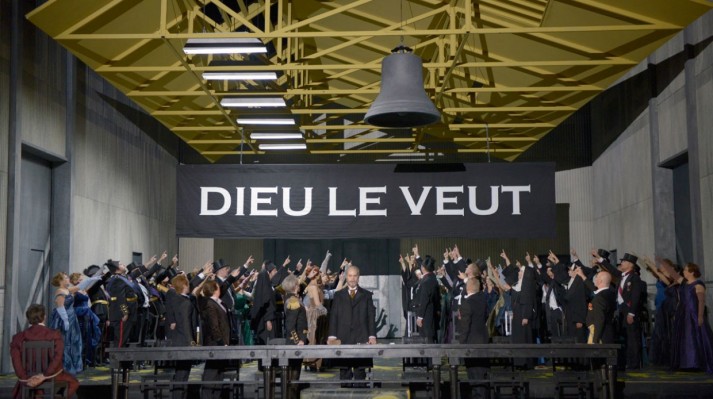Hugenotten – Deutsche Opera Berlin
With his HUGENOTTEN, Giacomo Meyerbeer brought one of the greatest massacres of European history to the opera stage in 1836. The attempt by the French Catholics to murder all the Protestants of the country during the time of Bartholomew in 1572 is still one of the most terrible examples of the effects of religious fanaticism . The fact that DIE HUGENOTTEN became Meyerbeer’s most famous opera is, however, not only due to the spectacular subject but also to the inexorableness with which he relates this material: the fragile peace between confessions over futile attempts at arbitration and the organization of the crime in the famous “Schwerterweihe” Until the slaughter of the Huguenots at random, the opera exemplarily shows the development of a catastrophe.
In the combination of the fate of the two loved ones Raoul and Valentine with the historic great event of the Bartholomew Night, the HUGENOTTEN became at the same time the model of the new genre Grand Opéra and one of the most effective works of the operatic history.
At the Deutsche Oper Berlin DIE HUGENOTTEN is a central part of the Meyerbeer cycle, presenting the most important works by the greatest Berlin composer in scenic new productions. For the director, the American David Alden has won one of the most prestigious opera directors of our time, of whom the productions of Britsten PETER GRIMES and BILLY BUDD were recently shown at the Deutsche Oper Berlin.

